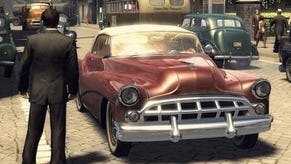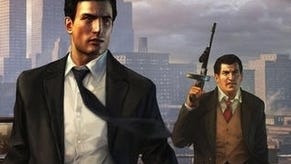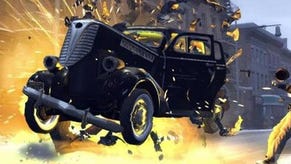Mafia II
Back for hood.
Back in the old days, we'd fumble innocently for ways to describe titles like Mafia. Terms such as 'mission-based driving game' and 'sandbox action-adventure' were tossed around with all the grace of a goon in concrete shoes, but none of them really stuck. Playing Mafia's long-awaited sequel for the first time, it suddenly seems obvious: this is gaming's own take on period drama.
And as with any good period drama, the devil is in the detail. Even in 2002's Mafia, it was always gloriously apparent how good the Illusion Engine was at conveying convincing characters (with facial modelling techniques easily two generations ahead of the curve). Now the rest of the tech has finally caught up to the same lofty standard. Walking out into the snow-drenched American metropolis of Empire Bay, you sense an almost slavish dedication to nailing the look and feel of a post-World War II gangster epic.
Fresh from active service in the winter of 1945, Sicilian immigrant Vito Scaletta returns a war hero. Stepping gingerly through the icy streets, locals take the opportunity to stop him and praise his efforts, engage in neighbourly conversation and offer a cup of tea. A nearby shopkeeper slops out his bucket as steam rises from a drain. Workers brave the elements on their way home, umbrellas in hand to the strains of Vaughn Monroe's 'Let It Snow'. You couldn't wish for a more evocative introduction to Vito Scaletta's world.
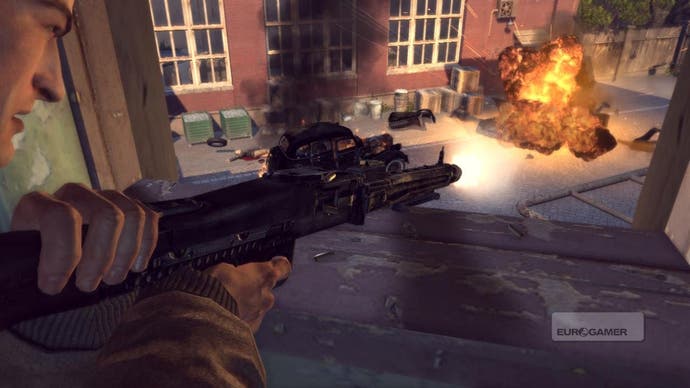
Arriving at his Mama's modest urban apartment, there's a palpable relief, but the brusque exchanges reveal an emotional detachment. All is not well in the Scaletta household, with a hard-working, worried and downtrodden mother burdened by the $2000 debt of her late husband, and a sister who continues to struggle to find the "right man" in this lowdown part of town.
With Vito resigned to returning to army duty, his wise-cracking childhood friend, Joe, offers him a predictably illegal way out, and a chance to get involved in a career far removed from the dour struggle he's used to. It's classic Nobody-Becomes-A-Made-Man fodder, of course, but Mafia II consistently dodges parody territory with the kind of sharp script and atmosphere that the forgettable Godfather games would have given a horse's head for. As you discover over and over again, context is key. Even routine driving assignments avoid contemptible familiarity with sparkling dialogue as Joe runs through his endearingly awful chat-up repertoire.
It helps enormously that there's an assured solidity to the various gameplay mechanics. Too often, open-world games can stutter along with a less than satisfying jack of all trades approach that usually leaves you with the impression the developers overstretched themselves.
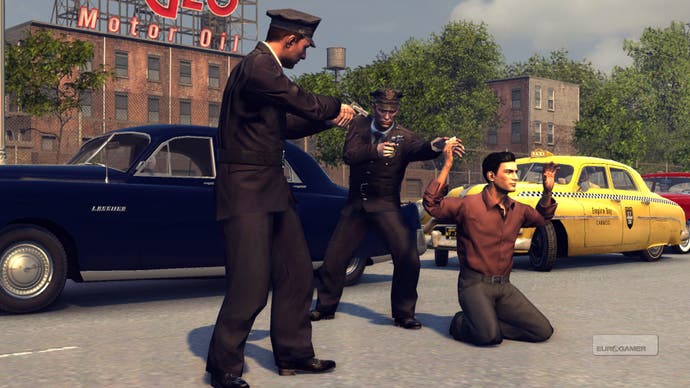
One of the first tasks for Vito is to save a woman from being the victim of 1940s-style road rage attack. Arming you with little more than Jack Johnson and Tom O' Leary at the start of the game, the fighting system evokes the suitably over-the-top fisticuffs style of the era. Vito is able to swing wildly with a simple two-button approach that allows you to string together a volley of normal fast punches, or dish out more powerful, slower blows. With the ability to dodge and string together simple three-button combos, it's hardly the model of unarmed sophistication, but it's a highly accessible approach that should allow anyone to wade in relatively successfully.
If you happen to take too much damage, you can always rely on the fairly forgiving recharging heath system, or replenish yourself fully by heading to a shop for some pie or back home to raid the fridge. It's amazing what a bottle of cola can do for a flesh wound.


